Trauma-informed counseling paints itself as a safe harbor. But if you look closely, the foundation is not the Word of God
Trauma-informed counseling paints itself as a safe harbor, a place for the hurting to finally breathe. It sounds compassionate, even protective. But if you look closely, the foundation is not the Word of God. It begins with a therapeutic idea of humanity, one that quietly exalts self-protection above obedience to Christ. And more often than not, it encourages adult children to distance themselves, or even sever ties, from their parents as if that were the path to healing. The ache for relief is understandable. Yet this counsel trades God’s call to reconciliation for a pursuit of autonomy. It shifts trust away from the Redeemer and sets it instead on human strategies of detachment.
Scripture never shrugs at the pain caused by fractured families. You see it in the cries of the Psalms. You see it in Genesis, where homes split apart under the weight of jealousy, deceit, and betrayal. But what do we also see? God calling His people again and again to entrust their wounds to Him, not to close themselves off in self-preservation. Think of Joseph in Genesis 50:20. Betrayed, sold into slavery, forgotten for years. If anyone had reason to cut off his brothers forever, he did. And yet his words echo through the ages: “You planned evil against me; God planned it for good.” That kind of forgiveness did not come from within Joseph. It flowed from confidence in the Lord’s providence.
This is where trauma-informed approaches falter. They raise emotional safety above obedience to God. They assume peace comes from keeping a distance. But the Word tells us that peace is not the absence of hardship; it is the presence of God in the midst of it. Peter writes in 1 Peter 2:21 that Christ “suffered for you, leaving you an example, that you should follow in his steps.” That passage isn’t about comfort. It is about unjust suffering under authority. And what did Jesus do? He entrusted Himself to the Father who judges justly. That is where true peace was found.
Here is another danger: these models often treat emotions as though they are the final truth. But Jeremiah 17:9 warns us that “the heart is more deceitful than anything else, and incurable, who can understand it?” Memories and emotions are real, but they can mislead. Pain can magnify wrongs and blind us to the grace of God. In biblical counseling, we do not dismiss emotion, but we do test it against Scripture. Paul reminds us in Romans 12:2 to renew our minds, lest we be pressed into the world’s mold. Without that renewal, bitterness can masquerade as healing.
God’s command to honor father and mother; first given in Exodus 20:12 and repeated in Ephesians 6:2–3, has no expiration date. It is not dependent on whether parents are worthy. Now, honoring does not mean excusing sin or remaining in danger. It does mean approaching parents with humility, respect, and an openness to peace where possible. Paul adds in Romans 12:18, “If possible, as far as it depends on you, live at peace with everyone.” Notice that, “if possible.” Scripture is honest. Sometimes peace will not come. But the believer’s calling is to seek it, not to sever ties simply because it feels easier.
The gospel brings what no therapy can: a changed heart. 1 Peter 2:24 “He himself bore our sins in his body on the tree, so that, having died to sins, we might live for righteousness. By his wounds you have been healed.” That is healing, not a psychological bandage, but the deep work of Christ. And that healing fuels forgiveness even when reconciliation lags or falters. Trauma-informed care may provide you with coping techniques. The gospel gives you love and the freedom to release bitterness.
I remember a man named Fred who had not spoken to his mother in eight years. He told me flatly, “I cut her off for my mental health.” He seemed confident. But behind his words, there was a sadness he could not hide. He had a sort of peace, but it was the peace of silence, not the peace of Christ. As we opened God’s Word together, he began to wrestle. He realized honoring his mother was not about her goodness, but about God’s. Months later, he wrote her a letter. No accusations. No venom. Just grace and truth. She never responded. But Fred was free, not because his mother changed, but because God changed him.
Then there was John. His father had failed him at every turn, absent, selfish, temper quick as fire. John wanted release, but forgiveness seemed impossible. What finally broke him was not a counseling technique but the cross itself. “While we were still sinners, Christ died for us.” That verse clung to him like a shadow. Slowly, his prayers turned from anger to intercession. The first phone call lasted five minutes before his dad hung up. Yet John stayed. That was the first step. Forgiveness, he discovered, was not weakness; it was spiritual warfare against bitterness.
I have seen far too many choose estrangement because it felt good, because it felt safe. That is the snare of trauma-informed care. It masquerades as protection while tearing apart families. For decades, humanistic thought has chipped away at the nuclear family, replacing dependence on God with dependence on therapists. And with trauma-informed care, it feels as if that vision has found a vehicle. Now, I must be clear. God never commands His children to remain in harm’s way. Sometimes separation is wise. Proverbs warns us not to linger in the company of those bent on evil. But separation must not harden the heart. You can remove yourself from danger without giving bitterness a throne. Trauma-informed models teach distance as empowerment. Scripture teaches distance, when necessary, as a grief, a sorrow to be lamented, and when possible, to be mended.
The fifth commandment still stands. It does not erase wisdom or deny the need for safety, but it calls for a posture of humility, respect, and a heart open to peace. Honoring does not erase consequences. It refuses to repay evil with evil. It means doing good even when good is not returned. In the end, trauma-informed care asks, “What happened to you?” Scripture presses deeper and asks, “How will you glorify God in what happened to you?” One centers on self. The other centers on the Savior. One may offer a temporary calm, but only Christ gives the peace that passes understanding. Only He makes all things new.
This article was originally published at Soul Care Network. It is reprinted here with permission.
-

Dr. Okinaga serves as assistant professor of biblical counseling in the Jack D. Terry School of Educational Ministries. He also occupies the Hope for the Heart Chair of Biblical Counseling. A Southwesterner by academic pedigree, he previously served as an adjunct professor of biblical counseling at Southwestern. His research focuses on addiction and how to counsel and disciple individuals coming out of addiction. He authored From Sin to Disease (Wipf & Stock, 2022), and has written in other areas related to addiction. Dr. Okinaga has over a decade of experience ministering and counseling those coming out of addiction in a variety of ministry settings. He has also served as an associate pastor in California. Dr. Okinaga is married to Nicole and is the father of James.
